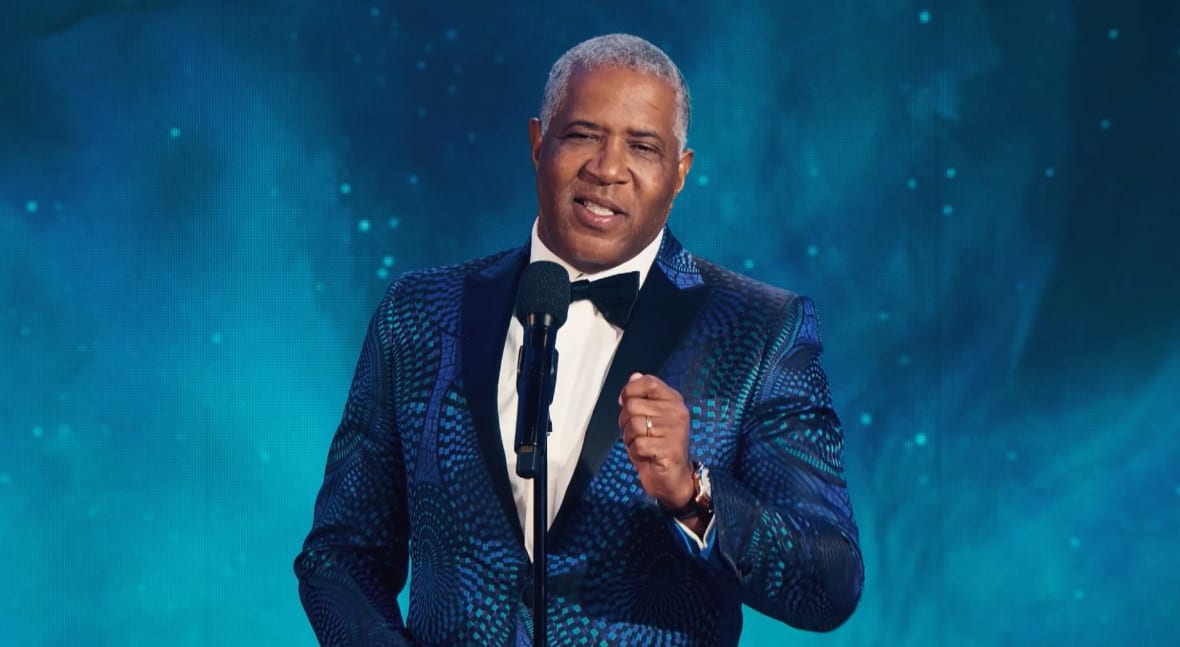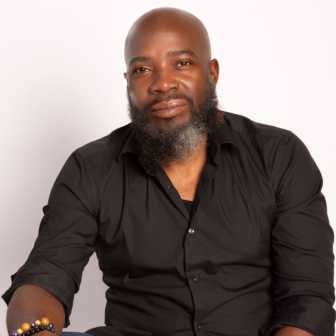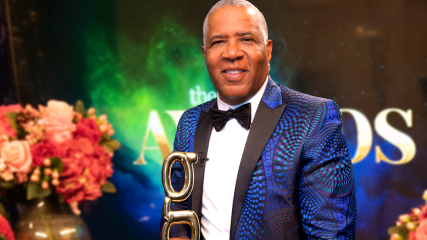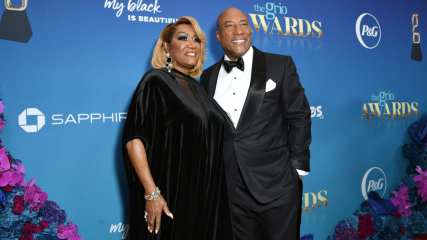Why billionaire philanthropist Robert F. Smith doesn’t believe in charity
OPINION: TheGrio’s inaugural Philanthropy Icon Award honoree Robert F. Smith thinks America should put its money where the wealth gap is.
Editor’s note: The following article is an op-ed, and the views expressed are the author’s own. Read more opinions on theGrio.
Robert F. Smith is a billionaire billionaire.
Aside from holding the title of the wealthiest African American and the third richest Black person in the world, Smith’s $11.9 billion net worth is not an arbitrary Kylie Jenner-like valuation. Bloomberg notes that Smith’s majority stake in Vista Equity Partners — the company he founded and made into one of the wealthiest private equity firms in the world — means he has enough liquid assets (what we call “money”) to put extra cheese on his Whopper. He has literally made a dollar out of 15 cents.

Yet, when theGrio honored Smith at its inaugural theGrio Awards, Smith wasn’t recognized for his remarkable achievements in science, technology and engineering. His incredible business record isn’t what earned Smith his award. Even though Smith is an actual engineer who has made billions of dollars for companies like Apple and Microsoft, theGrio honored Smith for doing something that seems antithetical to a career in turning a profit.
Robert F. Smith knows how to give money away.
Two years before he surprised Morehouse’s 2019 class by vowing to pay off their student debt, theGrio’s 2022 Philanthropy Icon was the first African American to sign the Giving Pledge, an agreement from philanthropists who promise to give the majority of their wealth to charity. And because he is keenly aware of America’s wealth gap, Smith is intentional about giving to causes that focus on Black Americans and their communities.
Despite having pockets as deep as Barry White’s baritone voice, Smith also understands that the wealthy will never be able to eliminate economic inequality by giving away money. America’s real wealth lies in corporations, which is why much of his philanthropic work is focused on using the resources of corporate America to address these racial and economic disparities. He created the Southern Communities Initiative to “accelerate racial equity funding, programming, and outcomes in six southern communities that are home to more than half of African Americans.”
His 2% Solution asks companies to contribute 2% of their income to ending systemic inequities as he explained to theGrio Awards audience:
“The average American gives 2% of their wages to charity; corporations should do the same,” Smith said. “The Student Freedom Initiative aims to enable any student studying STEM at an HBCU and other minority-serving institutions to graduate without crushing student debt. And we’re also working to dramatically strengthen these institutions themselves, make them centers of innovation, and give them the ability to access the technology platforms that the next generation of economic opportunity is going to be based on. So we continue to part with organizations like the Prostate Cancer Foundation, Mount Sinai, Susan G. Komen, the International Medical Corporation, and the City of Hope to reduce the medical disparities in the health care disparities that exist in our community. And ensuring that black women and black men have equal opportunity to live fruitful lives.
To be fair, Smith doesn’t believe in donating money. He was raised to view philanthropy as an investment, as he explained in his acceptance speech. “It started with my parents, two school teachers in a beloved community in the other America,” Smith told the audience. “We grew up without much wealth in dollars, but wealth and love. I remember as a child watching my mother write a $25 check to the United Negro College Fund every month for over 50 years. And just as she cared for our family, she knew how important it was to give Black children a pathway to education. She understood that her $25 monthly check wasn’t charity. It was an investment in our community and investment in young people, and so that they could thrive if they were just given a chance and an opportunity.”
Using a tiny percentage of corporate wealth to address economic inequality is a novel idea. If only there was a way to implement this idea. Who would argue against a billionaire with a proven record of economic growth? At the very least, we should get some economists to study this idea and see how it could help advance racial equity.
I bet they’d even win some kind of award.
Watch “Byron Allen Presents theGrio Awards” at 8 p.m. Saturday, Nov. 26 on CBS and at 8 p.m. Sunday, Nov. 27 on theGrio Cable Network. Check your local listings.

Michael Harriot is a writer, cultural critic and championship-level Spades player. His book, “Black AF History: The Unwhitewashed Story of America,” will be released in 2023.
TheGrio is FREE on your TV via Apple TV, Amazon Fire, Roku, and Android TV. Please download theGrio mobile apps today!


